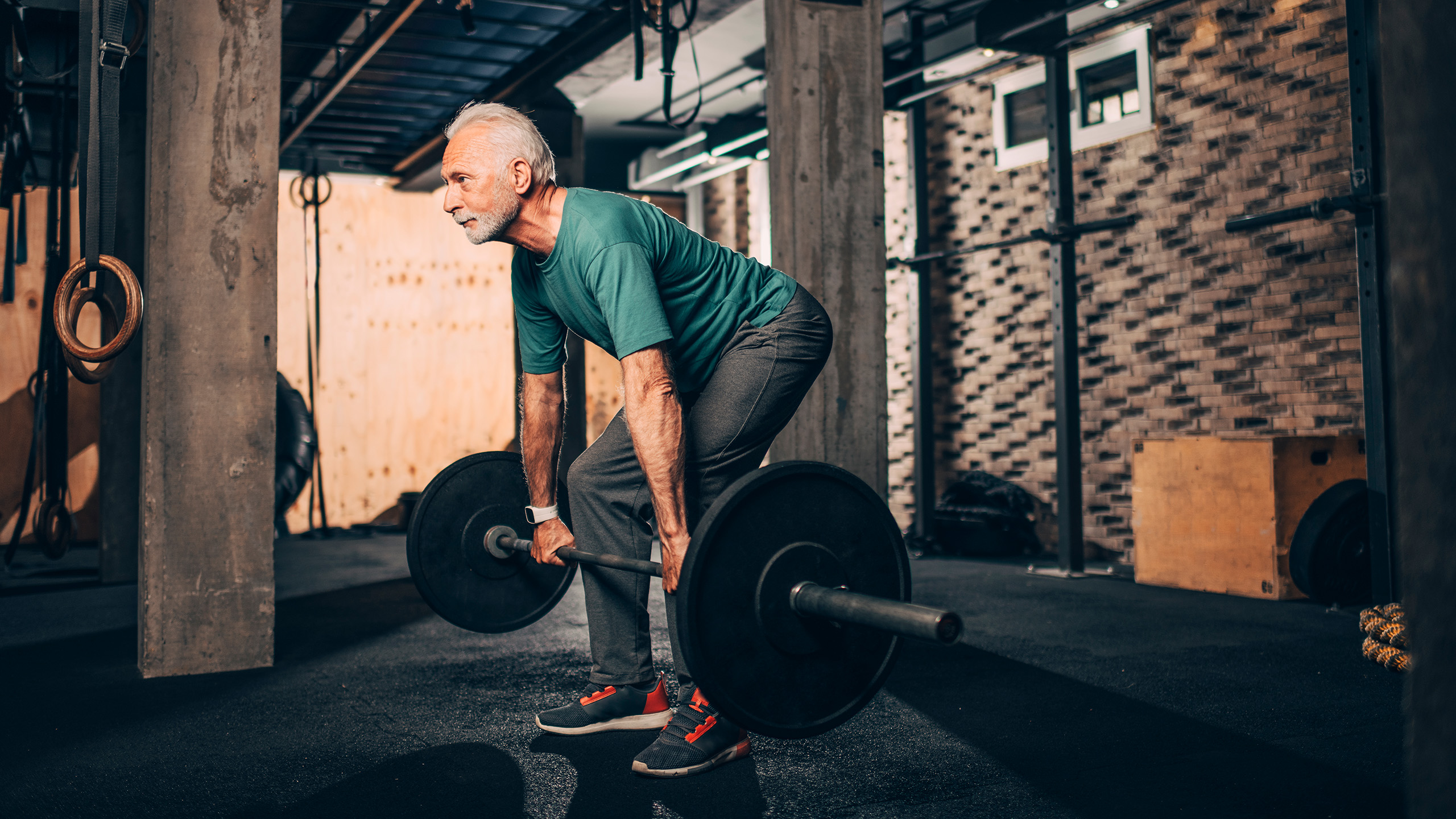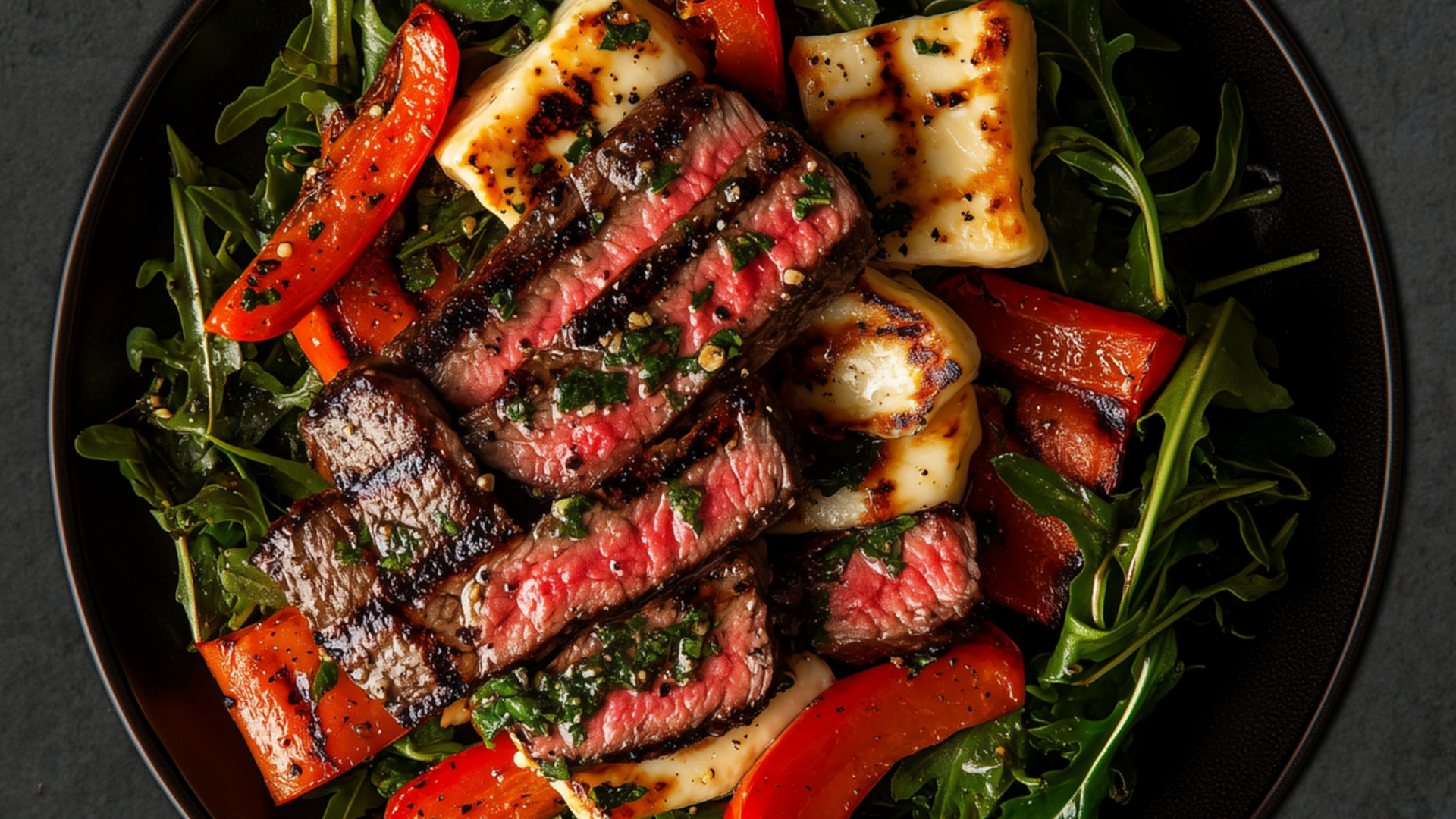The
Daily
Fix
3 rounds of Half Tabata
Grilled Halloumi and Steak Salad
Longevity and Strength: Why do the old get weak?

Strict handstand push-ups
½ bodyweight push press
Strict knees-to-elbows
½ bodyweight hang power snatch
Rest 2 minutes
Grilled steak and golden halloumi served over crisp arugula and roasted peppers, finished with a bright lemon-garlic-oregano dressing.
Analyzing strength loss of aging athletes compared to those that remain sedentary
Half Tabata is 4 rounds of 20 seconds of work then 10 seconds of rest (2 minutes total.)
Post load used and reps completed each round to comments.
Ingredients
For the Salad:
6 oz sirloin steak, seasoned with salt and pepper
4 oz halloumi cheese, sliced into ¼-inch thick slabs
2 cups fresh arugula
½ cup roasted red bell peppers, sliced into strips
1 Tbsp butter (for searing steak)
Salt and black pepper, to taste
For the Lemon Garlic Oregano Dressing:
2 Tbsp olive oil
1 Tbsp balsamic vinegar
1 Tbsp lemon juice
½ tsp Dijon mustard
1 clove garlic, finely minced
½ tsp dried oregano
¼ tsp sea salt
¼ tsp black pepper
Macronutrients
Protein: 50g
Fat: 40g
Carbs: 6g
Preparation
Make the Dressing: In a small bowl, whisk together the olive oil (2 Tbsp), balsamic vinegar (1 Tbsp), lemon juice (1 Tbsp), Dijon mustard (½ tsp), minced garlic (1 clove), dried oregano (½ tsp), sea salt (¼ tsp), and black pepper (¼ tsp) until emulsified. Set aside.
Cook the Steak and Halloumi: Preheat a grill pan or outdoor grill to medium-high heat.
Season the steak (6 oz) with salt and black pepper. Melt the butter (1 Tbsp) and brush it over the steak.Grill the steak for 3–4 minutes per side for medium-rare, or to your preferred doneness. Remove and let rest for 5 minutes before slicing thinly against the grain. While the steak rests, grill the halloumi slices (4 oz) for 1–2 minutes per side until golden grill marks form.
Assemble the Salad: Lay the fresh arugula (2 cups) on a serving plate. Top with roasted red bell pepper strips (½ cup), grilled halloumi slices, and the sliced steak. Drizzle generously with the prepared lemon garlic oregano dressing. Finish with a sprinkle of extra black pepper if desired.
This article by Lon Kilgore, PhD, explores the relationship between aging, strength loss, and physical activity. Lon begins by addressing the common belief that organ systems lose about 0.68% of their functional capacity per year after age 30, a decline that accumulates over time and contributes to frailty. However, data shows that strength loss in sedentary individuals occurs at a much faster rate than organ system decay alone can explain, suggesting that inactivity accelerates the decline in physical function.
Data from masters athletes in weightlifting and powerlifting demonstrates that those who continue structured training maintain far greater strength than sedentary or casually active individuals. Strength decay among competitive lifters still exists, but it is slower than in sedentary populations, pushing the onset of frailty back by decades. The analysis also highlights how reductions in training volume and intensity, especially after age 50, appear to be a major factor in accelerated strength decline among older lifters rather than biological limits alone.
Consistent exercise, particularly weight training, can combat the age-related loss of strength and function. Kilgore points out that sports participation and gym membership are low among older adults, and even among those with memberships, most do not train frequently or intensely enough to maintain fitness. He argues that increasing physical activity—doing “more than you’re currently doing”—can delay frailty and dependence, with weight training being one of the most effective ways to preserve health and independence as we age.

THURSDAY 250731